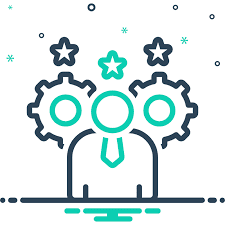How to Use Tableau Prep for Data Cleaning and Preparation
Discover how learn Tableau Training in Chandigarh helped me
and my first job as a mobile developer. From building real apps to acing interviews, find out how Flutter can fast-track your career!
It can be such a daunting experience to be a mobile developer. There are simply so many technologies, tools, and programming languages out there.
When I made the decision to be a mobile developer, I had no idea where to begin.
But choosing Flutter was one of the greatest decisions I have ever made.
In this post, I'll take you along with me through my experience and
how Flutter helped me land my first job.
Why I Choose Flutter
As soon as I learned about mobile application development, it became quite
evident to me that I had to make a choice between building separate apps for
iOS and Android or attempting to build apps for the two systems simultaneously.
It's when I stumbled upon Flutter. Flutter is a toolkit created by
Google, enabling you to write apps for both Android and iOS using one code
base. That was perfect for me because it would be saving time and let me
master one framework deeply instead of two distinct ones.Plus, Flutter makes
use of Dart, a clean and easy-to-read language. As a beginner, Dart did not seem so daunting as compared to Java or Swift.
How I Started Learning Flutter
I had a simple plan initially:
Learn Dart basics: I spent a few weeks learning Dart. I knew how to write
simple programs, loops, functions, and classes.
Build small Flutter apps: Once I was comfortable with Dart, I shifted to Flutter. I started building simple apps like a calculator, a to-do list, and a weather app.
Complete tutorials and courses: I completed free YouTube tutorials and some
paid tutorials from websites such as Udemy. Step by step tutorial videos were a blessing for me.
Practice daily: Regardless of just for one hour, I made sure that I coded each
day. Daily practice kept me occupied and made me known to Flutter.
Creating Actual Projects
Once I had learned the fundamentals, I realized that I would need real projects
to show to employers. I started developing larger apps like:
A mock food delivery app
A personal expense tracker app
A simple chat app
These projects introduced me to concepts like
State management (with Provider and Riverpod)
Navigation between screens
API integration
Storage in the database with Firebase
It took more confidence in working on actual projects. I even pushed
such projects to GitHub to create a project portfolio.
Building My Portfolio
I realized that mere learning was not sufficient. I needed to demonstrate my competence. So, I created a simple online portfolio with:
My bio and skills
Screenshots and links to my Flutter projects
My GitHub profile link
A downloadable resume
Having a portfolio made it easier for recruiters to know my strengths
without assuming anything. It demonstrated that I was concerned about
my career.
Job Interview Preparation
I used to prepare questions regarding Flutter and mobile app
development prior to interviews, for instance:
How is Flutter different from native development?
What is a Widget tree in Flutter?
How do you handle state in Flutter?
I also spent time doing coding challenges on platforms like Leet Code.
Despite anxiety, practice had made me calm under interview situations.
Job Applications
I applied to job websites like LinkedIn, Indeed, and job postings in the local area to look for junior Flutter developer roles.
I made sure I customized my resume to
each job and highlighted my Flutter projects.
While applying, I highlighted:
My hands-on experience with Flutter
My willingness to learn and develop
References to my GitHub and portfolio
In a matter of two weeks, I started getting interview calls.
My First Job
My first interview was for a technology startup company. They required a junior
mobile developer who could design cross-platform apps. While at the interview, I explained my learning experience, my projects, and how I utilized Flutter in implementing real-world solutions.
They appreciated my portfolio and hands-on experience. Even though I did not
have professional experience, they appreciated the fact that I was enthusiastic
and willing to work on mobile app development.They called me for an interview
after one week!
Why Flutter Made a Difference
In retrospect, Flutter helped me a lot because:
Less learning curve: I didn't need to learn two different frameworks for Android
and iOS.
Real-world experience: I learned how to create end-to-end apps, not bits and
bobs.
Good portfolio: End-to-end projects distinguished me.
High demand: There are plenty of companies looking for Flutter developers
as it saves them money and time.
If not for Flutter, my learning curve to go into mobile development would have been
far worse.
If you wish to become a mobile developer as a career, Flutter is your best bet. It's simple to learn, it's mighty, and it's a hot skill. Most significantly, it compels you to create genuine applications that solve real problems .
Ready to start your Flutter journey? Dive into learning Flutter today and build your first mobile app. JOIN CBitss

Comments
Post a Comment